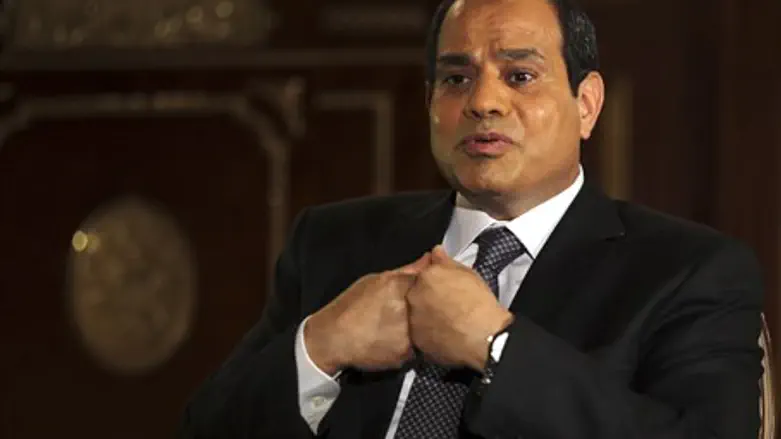
Egyptian President Abdel-Fattah Al-Sisi told The Associated Press (AP) on Saturday that Cairo would be willing to help the U.S.-led coalition against the “Islamic State” (IS) group.
Asked if Egypt might provide airspace access or logistical support for airstrikes, he said, "We are completely committed to giving support. We will do whatever is required."
He appeared to rule out sending troops, however, telling AP that Iraq's military is strong enough to fight the militants and that "it's not a matter of ground troops from abroad."
Most importantly, he said, extremism across the region must be tackled — not just the Islamic State.
Sisi warned that the greatest danger came from foreign fighters flooding into the region's conflicts, saying they will eventually return to their home countries — including in Europe — and spread extremism there. He said they "must be prevented" from entering the region.
The comments in the interview echo ones made by Sisi last week during a meeting with U.S. Secretary of State John Kerry.
Sisi told Kerry that any global coalition against terrorism should battle not just IS but other groups as well.
The Egyptian president said any international coalition to combat terrorism "should be comprehensive and not exclusively target a specific organization or eradicate a certain terrorist hotspot".
He also told AP in Saturday’s interview that if he had not stepped in to remove former President Mohammed Morsi and his Muslim Brotherhood movement, Egypt "would be like all the countries that now suffer from widespread violence, internal conflicts and civil wars.”
Sisi said that all his actions with regards to the crackdown on the Muslim Brotherhood with were to combat militancy and save the country from civil war. He said Egypt is a model for fighting terrorism and that the U.S.-led coalition to fight the IS should take note.
"More than a year ago, I warned that the region was heading to great danger from extremist thought," he told AP. "It didn't receive proper attention until the events in Iraq took place and the Islamic State swept over the Iraqi-Syrian borders."